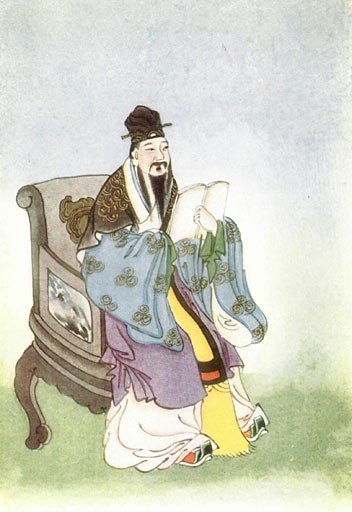Does it compute?
Recently I was struck by a dichotomy in ancient Chinese philosophy. Two opposing worldviews that relate well to two different ways of thinking that can be identified within businesses.
I came about this idea while reading The Path by Michael Puett, the Harvard professor who teaches how the ancient Chinese philosophy relates to contemporary issues like work, education, relations and self-development.
Order
On the one hand, Puett introduces Mo Zi who lived in the fourth century BC in the South-West of the current state of Shandong. He argues that the way to reach a good society is that everyone looks inside to discover who we really are, craft a plan to become successful and work hard to realise this plan, and if we do so – because we are computable personalities in a computable universe – we will get prosperous.
Mo Zi was convinced that society should be organised in a way that rewards good behaviour with success, fame and money, and that punishes bad behaviour with degradation, fines and loss of face.
This reads very much like a contemporary reasoning about personal responsibility, accountability and success and Puett points out they are similar to early protestant ideas that are on the basis of our modern worldview.
Disorder
On the other hand, Puett describes Mencius who lived in the third century BC and is a follower of Confucius. He opposes Mo Zi’s worldview.
According to Mencius, things that happen in the world cannot be calculated: hard work doesn’t necessarily lead to prosperity, and evil deeds are not always punished.
He believed that we have to give up the idea of a coherent system of rewards and punishment. Otherwise, we wouldn’t strive to become better human beings, but just do what gives us the most rewards.

Emotions
Mencius feared that this calculated behaviour would drive rational and emotional abilities apart, while they are the people who are in touch with their emotions and deliberately work to refine them are good people.
This idea comes from Mencius’ mentor Confucius: life is an endless sequence of encounters, different ways of reacting and being thrown from one emotion to the other. However, we can learn to refine our reactions:
Only by exercise will we be capable to react correctly (…) In the beginning of our lives we react with emotions; in the end with decency.
It is not by conquering or suppressing our emotions that we can develop decency.
They are what makes us human.
It is by refining our emotions and teaching ourselves to react to others in a better way that we can create a better way to create moments of order in our lives.
On the defence of emotions
We can link Mencius’ view of emotions to a more recent attempt of the contemporary American philosopher Martha Nussbaum to argue for their importance in ethical reasoning:
Instead of viewing morality as a system of principles to be grasped by the detached intellect, and emotions as motivations that either support or subvert our choice to act according to principle, we will have to consider emotions as part and parcel of the system of ethical reasoning.
We immediately recognise a different tone of voice in this definition that makes it clear that this ancient Chinese idea that Mencius described so intuitively and almost lightheartedly, has now turned into an idea – paradoxically – that needs thorough research and that needs to be defended against ages of dismissing emotions as misleading and even suspicious.
We have the feeling Nussbaum thinks she needs to incorporate emotions in the rational scheme to grant them a legitimate place in her system: they are an important part of rational deliberation even if we don’t fully understand them and by doing so we can be successful in what we try to obtain.
Instead of they are what they are and by learning to refine them we can become better human beings which are a goal in itself.
The relevance for businesses and their mission
If we now try to make a bridge between this philosophical analysis of these two different worldviews and the role emotions play in them on the one hand, and the world of business on the other, we can see a divide between different areas of decision making.
On the one hand, we have the areas where pure logic and emotionless calculation are kings, like finance and supply chain.
On the other hand, we have the areas where we try to use emotions to convince people of change, or of the value of our brand.
For a discussion on the latter, we would like to refer to our previous pieces on storytelling. If we look at the former we could argue that these are the areas where we can apply data storytelling.
However, by doing so we already subdue ourselves to the idea that the world is an orderly place where if we reach our targets – a certain percentage of growth, a certain forecast accuracy – we will be rewarded and success will be ours.
Nussbaum comes to the point in this description of the emotions we experience contemplating this idea of reward and success:
But the peculiar depth and the potentially terrifying character of the human emotions derives from the especially complicated thoughts that humans are likely to form about their own need for objects, and about their imperfect control over them.
Also, a more fundamental question arises: are the targets a goal or are they a means?
And if they are a means, a means to what exactly? To realise the mission of the organisation?
If we make an impact that matters, does that make us better human beings?
Or is it the other way around do we make an impact that matters, by trying to become better human beings and applying the principles and methods that we use for this end to our professional lives as well?
What are your answers? Let me know in the comment section below!
For more business tips, check our entrepreneurship section and subscribe to our weekly newsletters.






